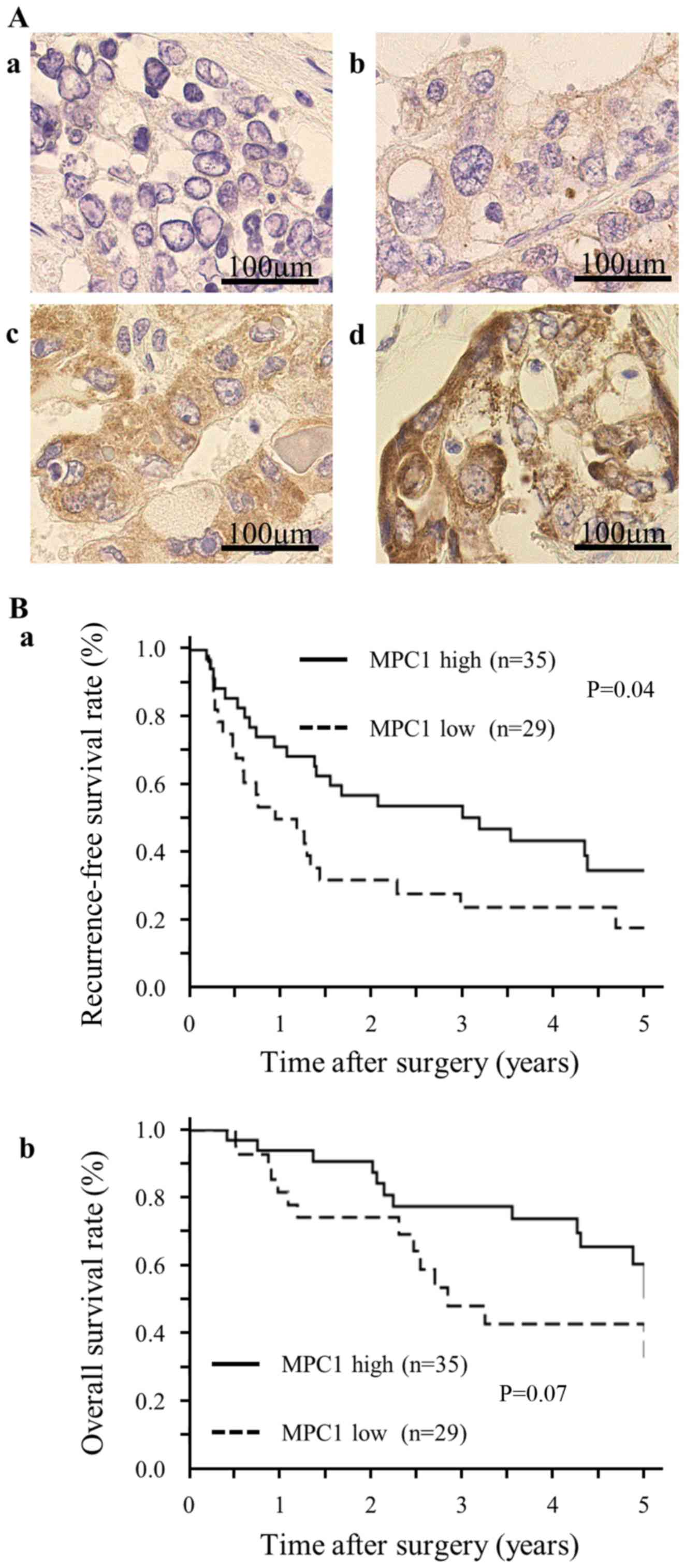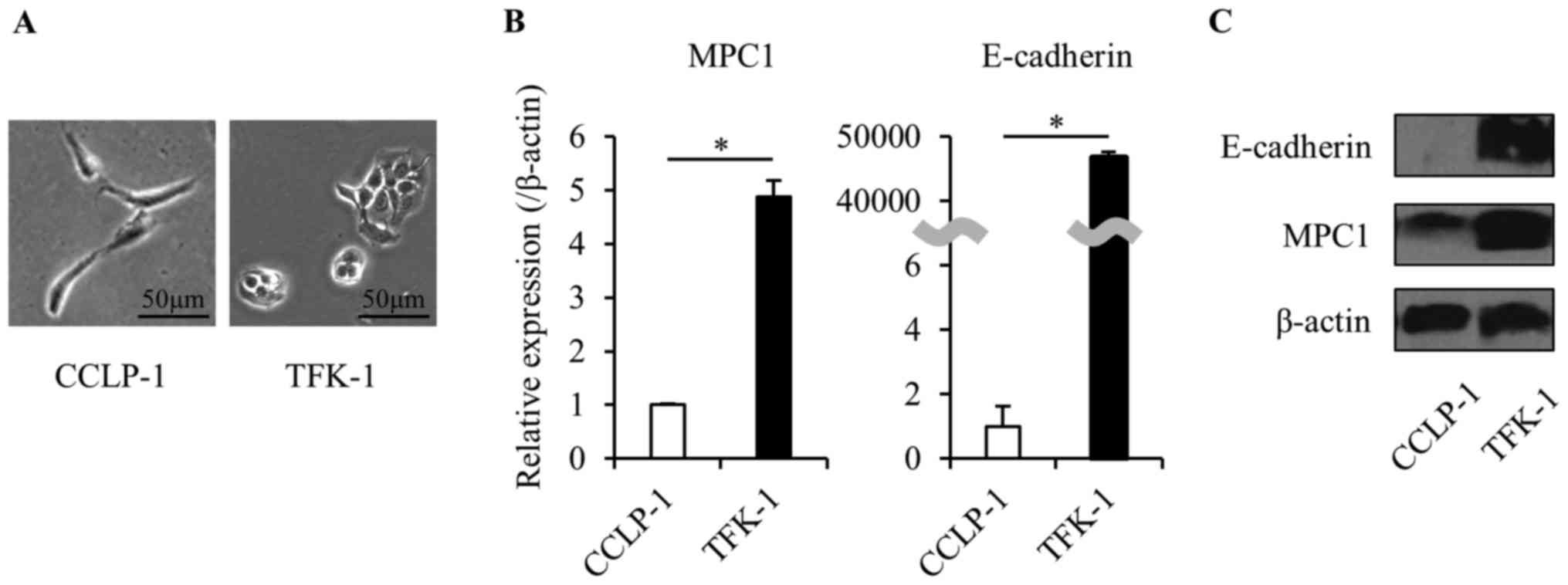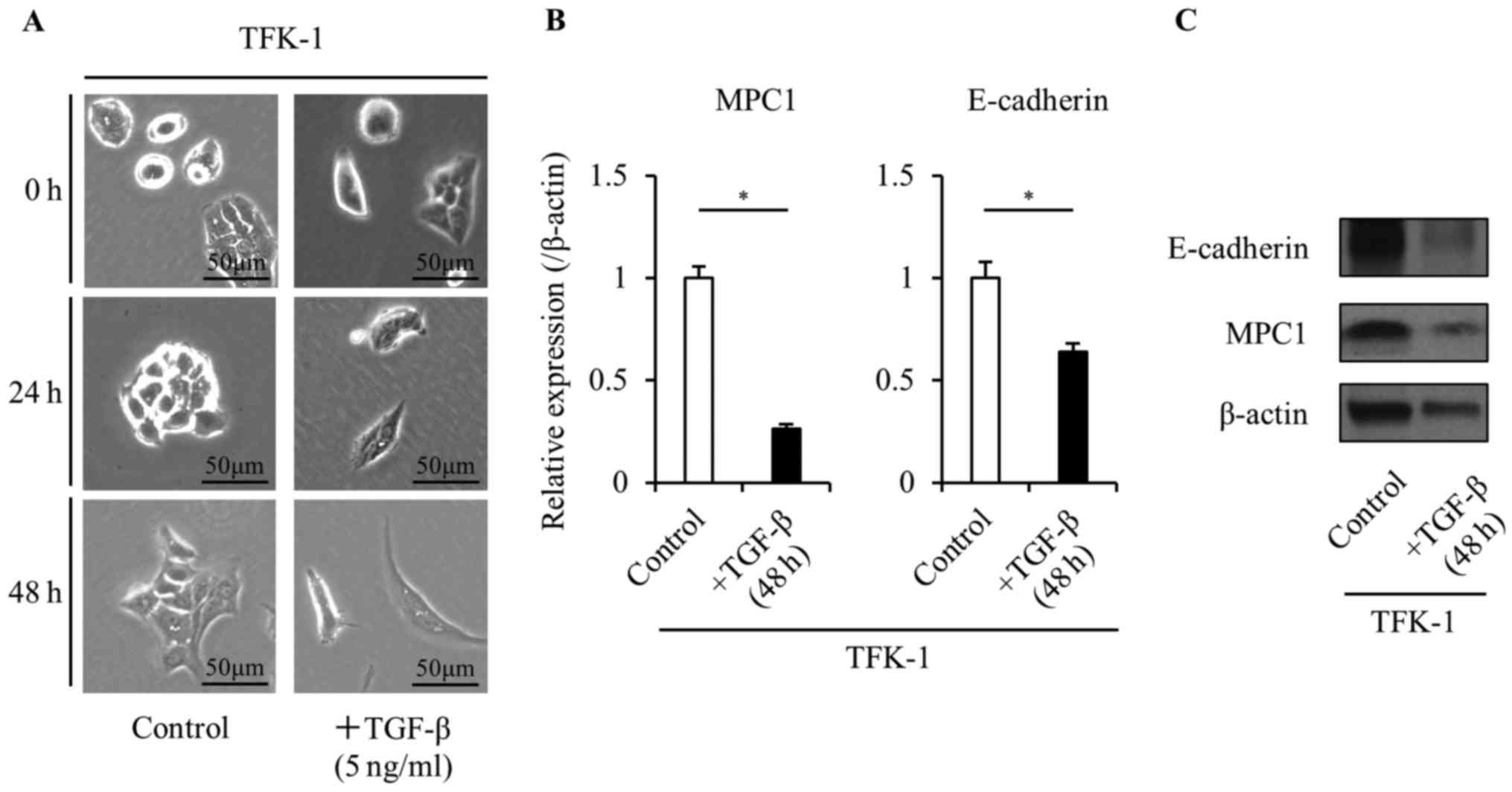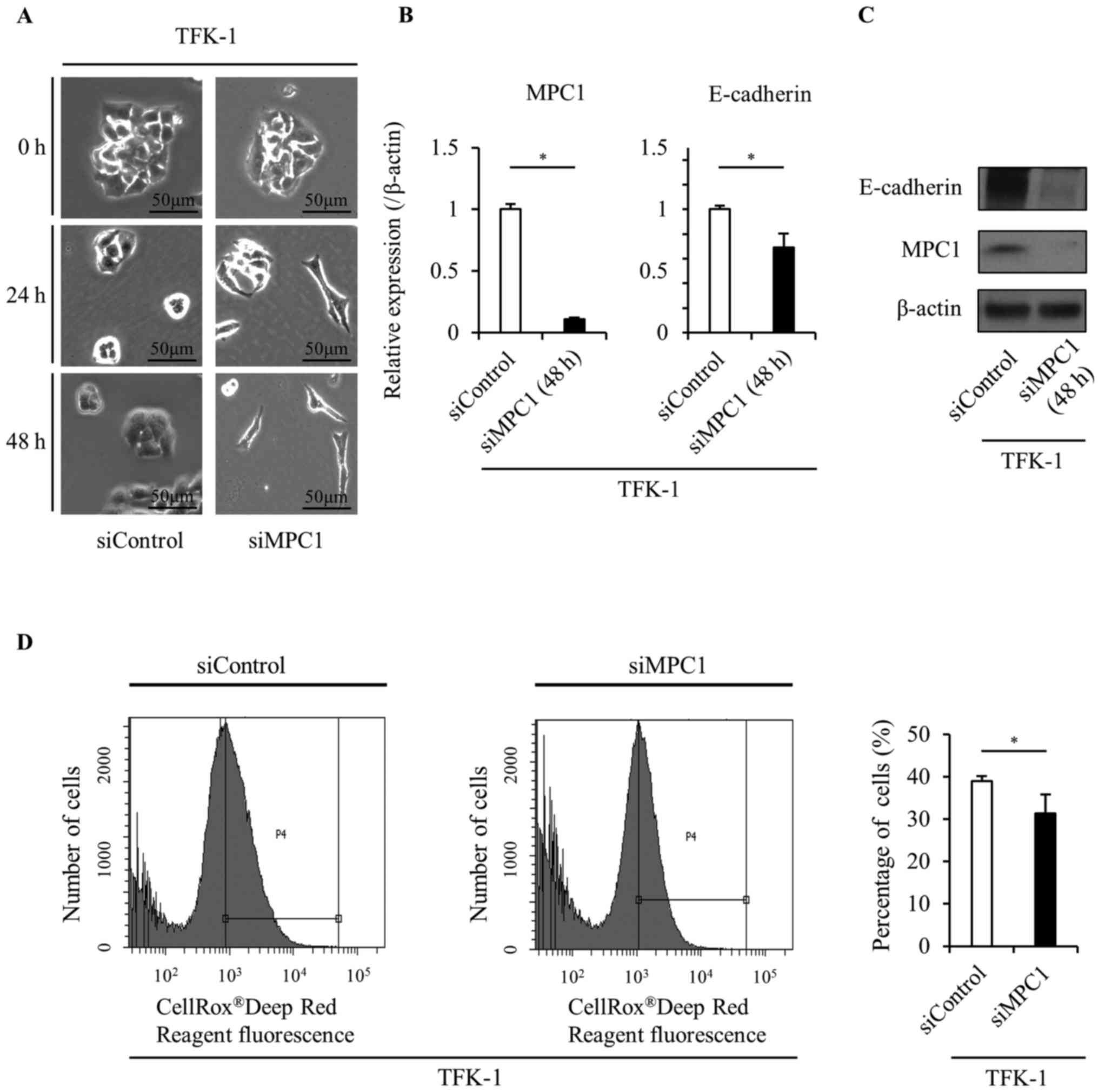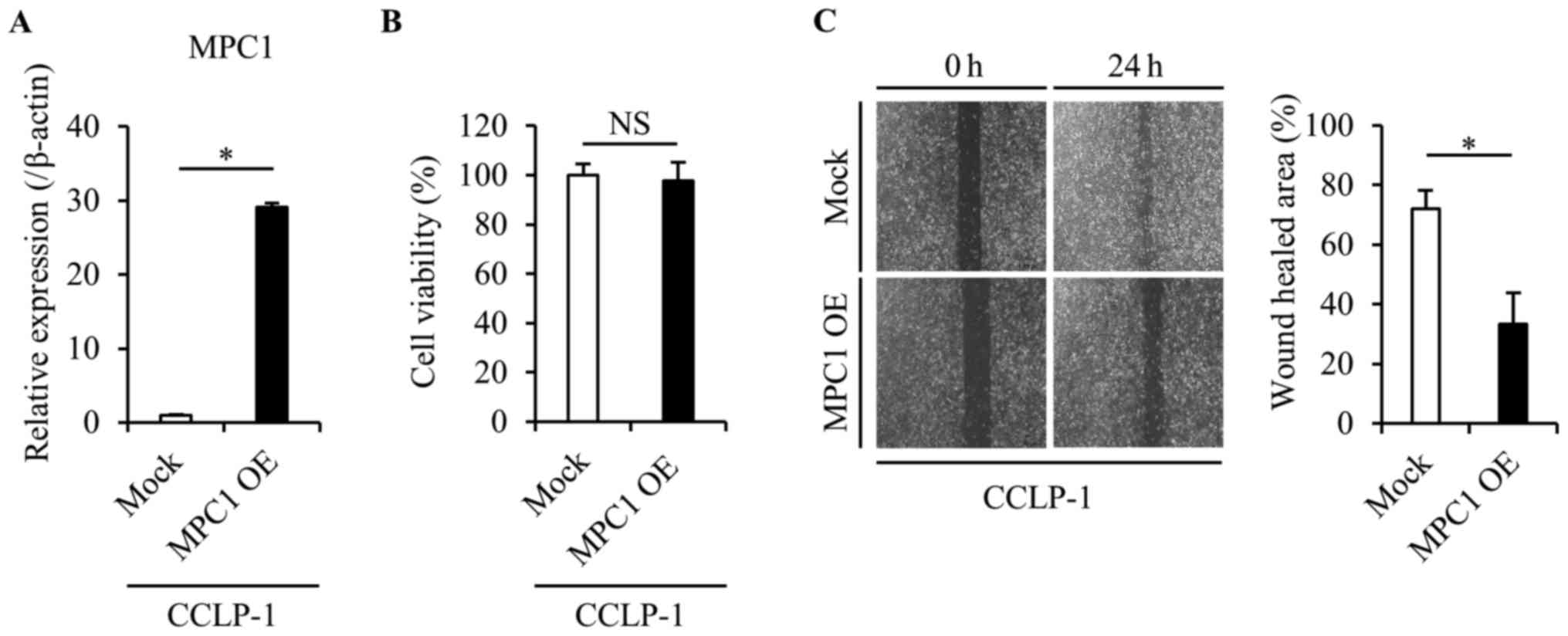Spandidos Publications style
Ohashi T, Eguchi H, Kawamoto K, Konno M, Asai A, Colvin H, Ueda Y, Takaoka H, Iwagami Y, Yamada D, Yamada D, et al: Mitochondrial pyruvate carrier modulates the epithelial-mesenchymal transition in cholangiocarcinoma. Oncol Rep 39: 1276-1282, 2018.
APA
Ohashi, T., Eguchi, H., Kawamoto, K., Konno, M., Asai, A., Colvin, H. ... Ishii, H. (2018). Mitochondrial pyruvate carrier modulates the epithelial-mesenchymal transition in cholangiocarcinoma. Oncology Reports, 39, 1276-1282. https://doi.org/10.3892/or.2017.6172
MLA
Ohashi, T., Eguchi, H., Kawamoto, K., Konno, M., Asai, A., Colvin, H., Ueda, Y., Takaoka, H., Iwagami, Y., Yamada, D., Asaoka, T., Noda, T., Wada, H., Gotoh, K., Kobayashi, S., Koseki, J., Satoh, T., Ogawa, K., Doki, Y., Mori, M., Ishii, H."Mitochondrial pyruvate carrier modulates the epithelial-mesenchymal transition in cholangiocarcinoma". Oncology Reports 39.3 (2018): 1276-1282.
Chicago
Ohashi, T., Eguchi, H., Kawamoto, K., Konno, M., Asai, A., Colvin, H., Ueda, Y., Takaoka, H., Iwagami, Y., Yamada, D., Asaoka, T., Noda, T., Wada, H., Gotoh, K., Kobayashi, S., Koseki, J., Satoh, T., Ogawa, K., Doki, Y., Mori, M., Ishii, H."Mitochondrial pyruvate carrier modulates the epithelial-mesenchymal transition in cholangiocarcinoma". Oncology Reports 39, no. 3 (2018): 1276-1282. https://doi.org/10.3892/or.2017.6172















